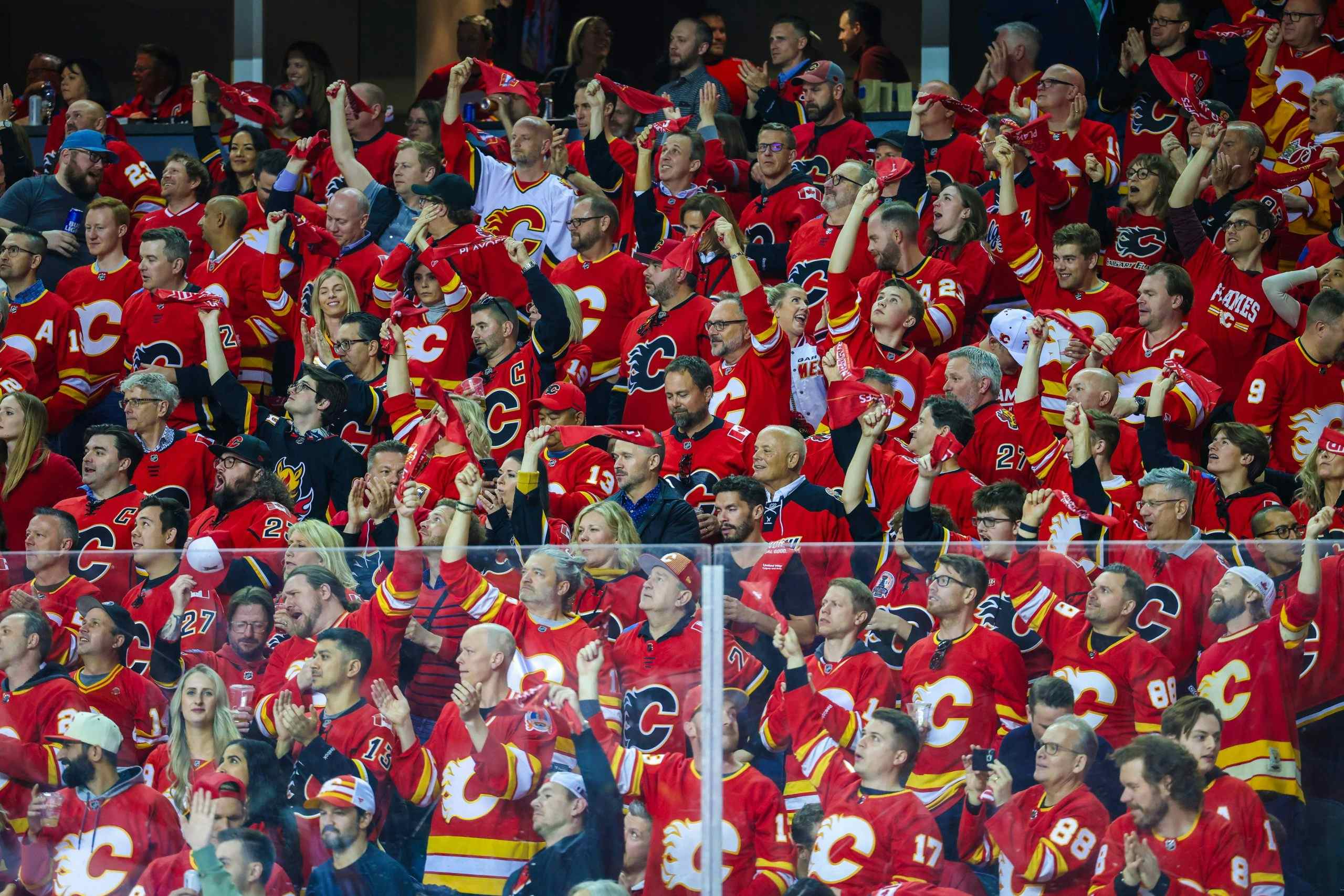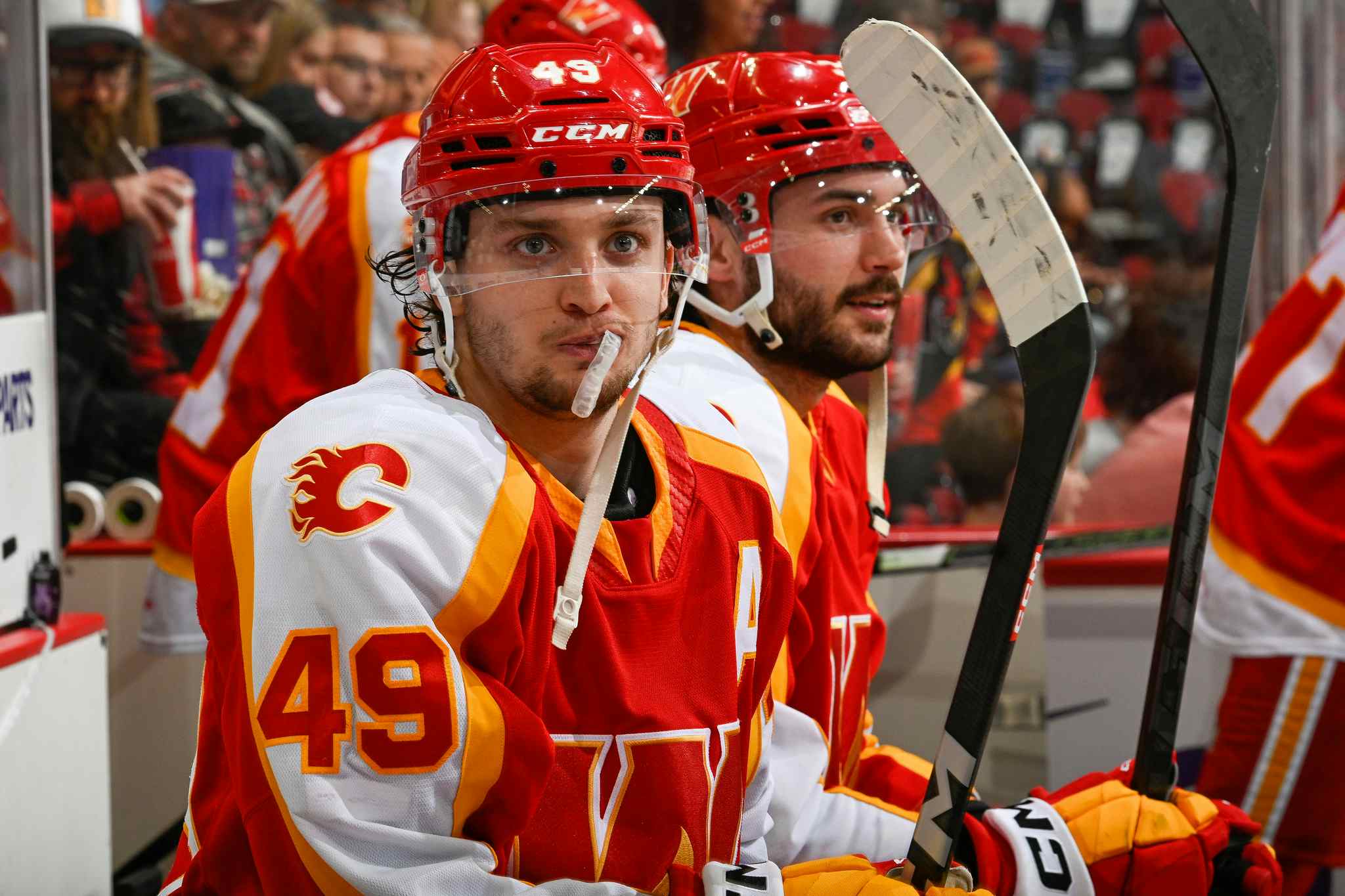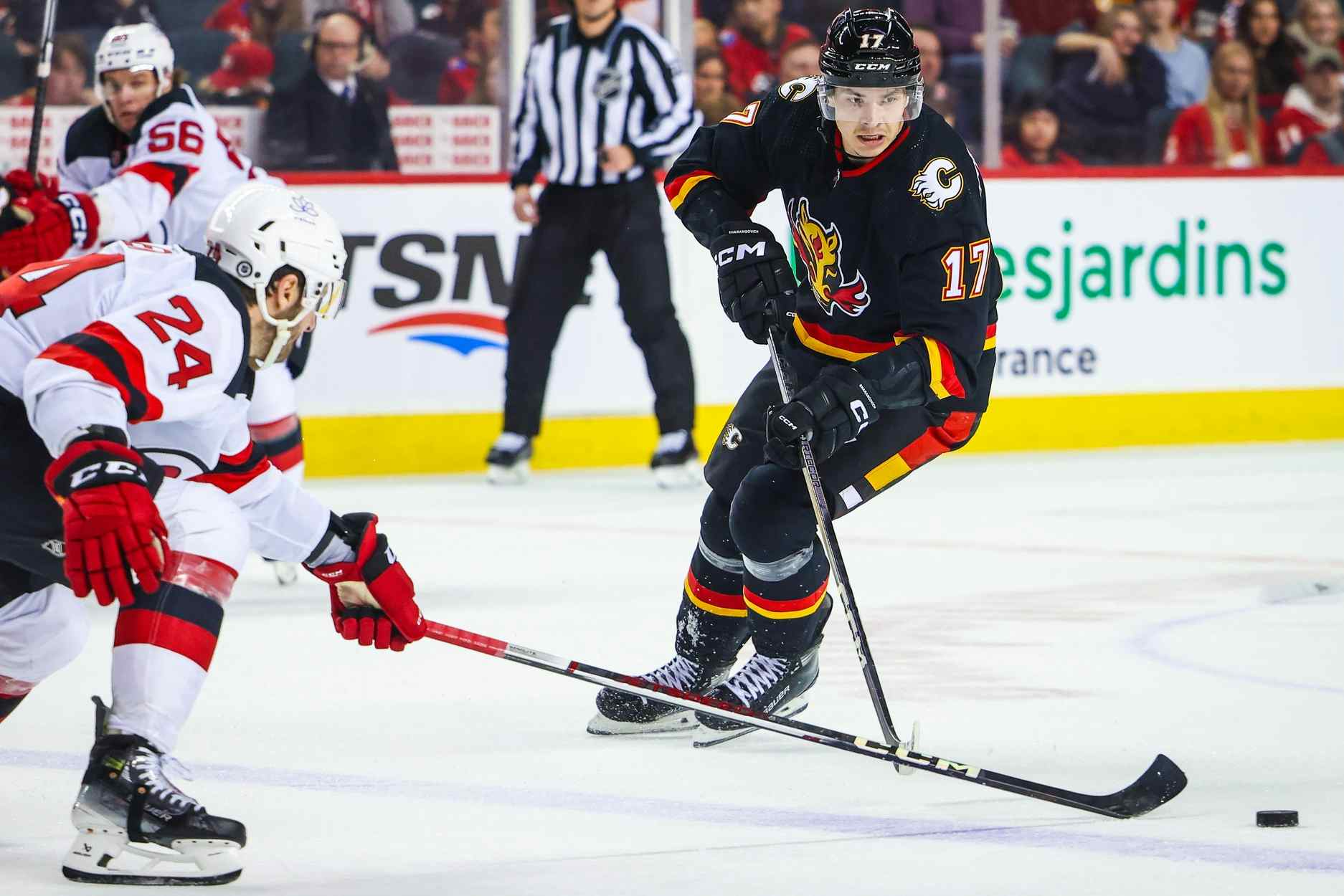Five things: What you need to compete
By Ryan Lambert
9 years ago
1. Let’s talk about it
Last week I inadvertently set off yet another fire storm by having the audacity to suggest the Flames’ winning ways weren’t well-founded in “The Process” that successful teams actually have when it comes to winning over 82 games or more. I seem to recall that a lot of people suggested the Flames are closer than I think to being a competitive team in the NHL.
I wonder two things about this:
a) How one defines “competitive.”
(Because to me merely getting into a playoff for which eight of 14 teams in a conference end up qualifying doesn’t really do much to make you actually competitive. Your mileage may vary on that, I guess, but if I’m a fan of any team I’d rather see them finish 30th than 16th or whatever. If you’re not competing for a Cup, you’re not competing for anything worthwhile. Lots of teams make the playoffs and lose in the first round. They’re called “The Calgary Flames 2005 to 2009.”)
b) What makes people think that’s the case.
That second one is what’s of greater interest to me, but I think it’s pretty apparent that the Flames are miles away from having what it takes to be true Cup contenders. The needs they have supersede the few admittedly very good building blocks already under contract.
They say — over and over again — that the NHL is a copycat league. What people generally mean when they say that, though, is that teams copy each other’s styles. Bruins win the Cup, everyone tries to get tough. Kings win the Cup, everyone tries to get big. And so on. It never really works out for teams that push all in on any one strategy in that regard, but that doesn’t stop anyone.
But it is a copycat league insofar as the recipe that teams in the salary cap era have used to win the Cup really doesn’t change very much year-to-year. I’ve long had my own theories about what makes a team a reasonable bet to win the Cup every year, and I think they hold a lot of water. Not that they’re groundbreaking or anything, but go back and look at any legit Cup contender of the last decade or so and you see the same characteristics over and over.
And while slight shortfalls in one area can be more than made up by excesses in the others — and you’ll see what I mean in a minute — the last four or five years have really settled into a nice rhythm in this regard. (It also goes without saying that you need a good coach and good supporting cast and blah blah blah, but the farther down you get in the lineup, the less you need guys who are high-level at those positions. You don’t need The Best Fourth Liners In The NHL or anything.)
Here’s what you need…
2. Elite No. 1 center
It goes without saying that you need an elite center to win the Stanley Cup. The Kings and Blackhawks of the last five years have had Anze Kopitar and Jonathan Toews, respectively. The Bruins had Patrice Bergeron. The Penguins had Sidney Crosby. The Red Wings had Pavel Datsyuk, the Ducks had Andy MacDonald(???), the Hurricanes had Eric Staal.
At the time they hoisted those Cups, those guys were among the five or six best centers in the sport, with the obvious exception of MacDonald. But he was riding shotgun for a 94-point, 48-goal season from Teemu Selanne back in ’07 (meanwhile the team’s No. 2 center was some 21-year-old kid called Ryan Getzlaf, who put up 25 goals despite just 15 minutes of ice time a night, but we’ll get to that in a minute). Apart from MacDonald, who was still very good in his day, these are all guys who would be the No. 1 on just about any team in the league by a pretty wide margin.
And look at the centers the teams those Cup winners beat had. In reverse chronological order: Derek Stepan, Bergeron, Patrik Elias (maybe not an elite No. 1, but he was centering Ilya Kovalchuk), Henrik Sedin, Mike Richards, Datsyuk, Crosby, Jason Spezza, Jarret Stoll (okay, that was just a weird season).
The question of whether the Flames have such a player is an easy one to answer: They sure don’t. Not today, at any rate. Sean Monahan is the functional No. 1 right now, playing tough competition and all that, but he’s not exactly piling up a ton of points like most of these guys tend to do. And Mikael Backlund, while he continues to be a driver of possession, seems like he’s never going to be more than a 50-point guy. Not that this is a knock on him, but y’know. The point is he’s not ever going to be an elite scorer.
A best-case scenario is that in three or four years Monahan or Sam Bennett are able to provide that, but right now, not so much. And really, if you can get any kind of legitimate No. 1 center you should feel blessed, let alone an elite one. They’re so rare in this league.
The likelihood that any center, let alone the two real candidates the Flames have, develops to that level is extremely low, and they’re pretty much always acquired via an extremely high pick. Maybe you say Bennett has that ceiling, but I’m not so sure.
3. Elite second-line scoring that drives possession
It’s hard for teams to have two really strong centers, so if you can slot someone who’s a possession-driving scorer into just about any position on the second line, you’re going to do well for yourself there, too.
Again, go down the list: Pick one of Jeff Carter, Marian Gaborik, or Justin Williams fit the bill for the most recent Kings run (god that team is great). Patrick Kane for the Blackhawks. Carter or Williams again. David Krejci and Milan Lucic for the Bruins. Kane again. Evgeni Malkin in Pittsburgh. Henrik Zetterberg or Johan Franzen in Detroit. Getzlaf or Corey Perry in Anaheim. Williams or Rod Brind’Amour in Carolina.
Runners-up? Same story: Rick Nash, Krejci/Lucic, Zach Parise, Ryan Kesler, Carter (in Philly), Zetterberg/Franzen, Malkin, Mike Fisher, Ryan Smyth.
As for the Flames, they’re also deficient here. Again, they might be able to develop it, and obviously you’d put the chances of a Monahan/Bennett/Backlund working out to be this kind of player a lot higher than you would for any of them becoming an elite center.
But the fact is that if you project them to top out at this level, having three of them doesn’t help very much. Many teams have more than one second-line center (St. Louis, for instance), but they don’t break through to that next strata of true Cup contenders.
4. A great No. 1 defenseman
This is where you start to see a little bit of wiggle room here, and I think a lot of it is due to so few guys being head-and-shoulders above the rest of the pack of regular old “Really Good No. 1 defensemen.”
The Kings have Drew Doughty, the Blackhawks Duncan Keith, the Bruins Zdeno Chara. That covers the last five Cup winners and it’s pretty straightforward. The Penguins’ best defenseman was Sergei Gonchar back when he was still a very strong contributor. Back to reality, the Red Wings had Nicklas Lidstrom, obviously. The Ducks had both Chris Pronger and Scott Niedermayer, which doesn’t seem fair. The Hurricanes had … Bret Hedican? (Again, that first post-lockout year was so weird.)
The runners-up had Ryan McDonagh, Chara, Marek Zidlicky(?), Alex Edler/Christian Ehrhoff, Pronger, Lidstrom, Gonchar, Wade Redden, and Pronger again.
These are mostly defensemen you’d murder your own grandmother to have on your favorite team. It’s really that simple. (Aside: Chris Pronger went to three Stanley Cup Finals with three different teams in five years. We don’t talk about this enough. What a difference-maker. Amazing.)
The good news is the Flames have this in spades, with TJ Brodie and Mark Giordano both currently playing at this level, though one has to wonder how much longer Giordano can play at this level, given that he’s already 31. Still, young Brodie will probably be able to play high-level defense for close to a decade, so it probably doesn’t matter for the Flames even if you don’t think they can be Cup-competitive within the next three years or so (which they cannot)
5. Competent goaltending
It is super-interesting to me that you very rarely see teams win Stanley Cups with actual elite goalies. Obviously, they give you a better chance to go far, but they’re not quite a necessity. They basically need to be only a little above-average, whether it’s just for a few rounds of the playoffs or throughout their careers.
To wit: Jonathan Quick turns into a monster in the playoffs but isn’t great. Same for both Cory Crawford and Antti Niemi. Tim Thomas bucks that trend. Marc-Andre Fleury and Chris Osgood not so much. JS Giguere and Cam Ward were both very good at the time but never, like, Vezina candidates.
The guys that lost the Cup Finals these last nine seasons were in the same boat: Henrik Lundqvist is one of the best goalies of all time, and Tuukka Rask is certainly headed on that path as well. But an ancient Marty Brodeur isn’t. Roberto Luongo is very good-to-great, but with the rest it drops off a cliff: Michael Leighton, Osgood, Fleury, Ray Emery, Dwayne Roloson.
The good news for the Flames is that it’s really easy to find affordable, league-average goaltending that you can then hope “Gets Hot At The Right Time.” They have that kind of thing now with Jonas Hiller, but I’m not sure he sticks around longer than this one contract of his. The Flames won’t be competitive by then anyway.
So yes, the Flames have some of the building blocks in place to get this kind of thing going. They’re missing the most important one, though. Or at least, the one that’s hardest to find.
Which is why I’ve always thought tanking was so important. “Look at the Oilers! They’re terrible!” is true, but Ryan Nugent-Hopkins isn’t a true No. 1 yet (I still think he gets there soonish), and they have neither competent goaltending or a great defenseman. Years of mismanagement will do that. I might have taken Ryan Murray over Nail Yakupov, for instance.
But you see my point. I hope.
Recent articles from Ryan Lambert





